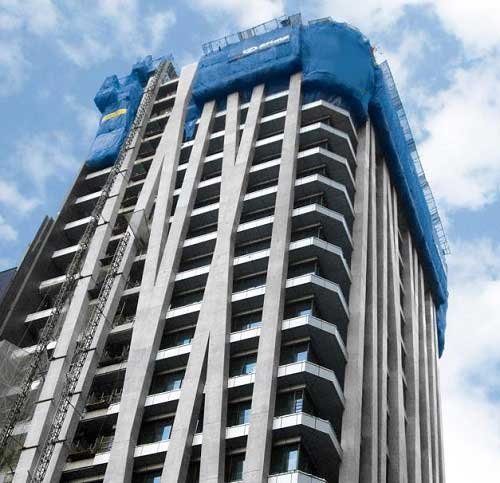Silica fume, a byproduct of the silicon and ferrosilicon alloy production, has gained prominence in the construction industry, particularly for its application in soil stabilization. This fine powder, composed of amorphous silicon dioxide, enhances soil properties and strengthens construction materials, making it a valuable resource in various construction projects.
What is Silica Fume?
Silica fume, also known as microsilica, is a highly reactive pozzolanic material. Its ultra-fine particles have a large surface area, which allows it to effectively react with calcium hydroxide in the presence of water, producing additional cementitious compounds. This process significantly enhances the mechanical properties of concrete and soil, making it an ideal additive for stabilization applications.
Benefits of Silica Fume in Soil Stabilization
The incorporation of silica fume in soil stabilization offers several benefits:
- Improved Strength: Silica fume increases the compressive strength of treated soils, enabling them to support heavier loads.
- Enhanced Durability: The pozzolanic reaction helps reduce permeability, making stabilized soil more resistant to water and environmental degradation.
- Reduced Plasticity: Silica fume decreases the plasticity index of soils, improving their workability and reducing the risk of shrink-swell behavior.
- Cost-Effectiveness: Using silica fume can reduce the amount of cement required in soil stabilization, leading to lower project costs.
- Environmental Benefits: Silica fume is a recycled material, contributing to sustainable construction practices.
Specifications and Dosage
The specifications for silica fume can vary based on its intended use. For soil stabilization, it is generally recommended to use undensified silica fume due to its high reactivity. Typical dosages range from 5% to 15% of the dry weight of the soil, depending on the soil type and desired properties.
Dosage Recommendations
| Soil Type | Recommended Silica Fume Dosage (%) |
|---|---|
| Clayey Soils | 10-15% |
| Sandy Soils | 5-10% |
| Silty Soils | 5-12% |
Practical Use-Cases
Silica fume is employed in various soil stabilization projects, including:
- Road Construction: Enhancing the load-bearing capacity of road subgrades and bases.
- Airports: Stabilizing runway surfaces to withstand heavy aircraft loads.
- Landfills: Improving the stability and integrity of landfill caps and liners.
- Foundations: Providing a stable base for building foundations in challenging soil conditions.
Benefits and Risks
Benefits
Utilizing silica fume in soil stabilization provides a range of advantages:
- Enhanced Mechanical Properties: Increased shear strength and load-bearing capacity.
- Long-Term Performance: Improved durability over time, leading to lower maintenance costs.
- Environmental Compliance: Contributes to green building certifications by reducing the need for virgin materials.
Risks
While silica fume is beneficial, there are potential risks to consider:
- Dust Generation: Silica fume can create dust that may pose respiratory hazards; proper safety measures should be implemented.
- Mix Design Complexity: The addition of silica fume may require adjustments in mix design to achieve optimal results.
- Compatibility Issues: Not all soil types may react favorably with silica fume; pre-testing is recommended.
Quality Assurance Tips
To ensure the effective use of silica fume in soil stabilization, consider the following quality assurance tips:
- Conduct Soil Testing: Analyze soil properties to determine the appropriate silica fume dosage and mix design.
- Monitor Mixing Procedures: Ensure uniform distribution of silica fume in the soil mix to avoid weak spots.
- Perform Field Tests: Conduct in-situ tests to validate the effectiveness of the stabilization before proceeding with full-scale applications.
Choosing the Right Silica Fume
When selecting silica fume for soil stabilization, consider the following options:
- Undensified Silica Fume: Highly reactive and ideal for soil applications.
- Densified Silica Fume: Suitable for concrete and other applications where handling characteristics are critical.
For specific projects, you may also want to explore various grades of silica fume that can offer different performance characteristics:
- 85 Grade Silica Fume: Suitable for a variety of construction applications.
- 92 Grade Silica Fume for Concrete: Designed for high-performance concrete mixes.
- 94 Grade Silica Fume for Concrete: Ideal for demanding environments.
- 96 Grade Silica Fume for Refractory: Developed for high-temperature applications.
Incorporating silica fume into your soil stabilization projects not only enhances performance but also contributes to sustainable construction practices. If you’re looking to explore the potential of silica fume for your next project, reach out to our team for expert guidance and a custom quote. Contact us at sales@superior-abrasives.com to get started on optimizing your soil stabilization solutions.




